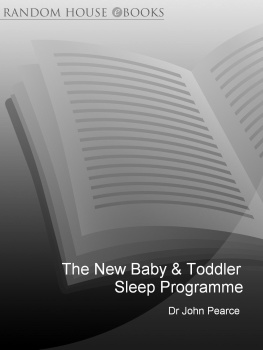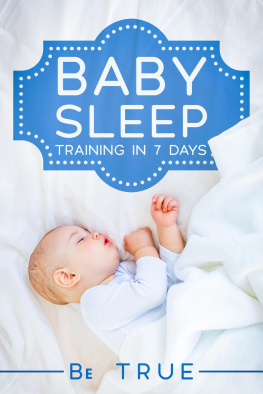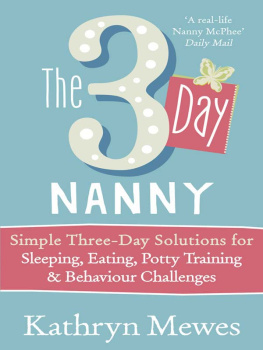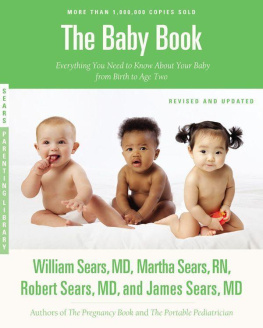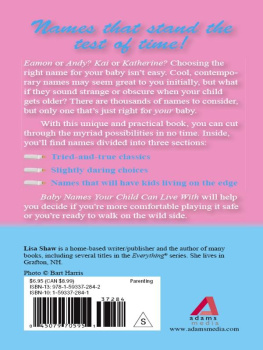Copyright 2009 by Robin Goldstein
Cover and internal design 2009 by Sourcebooks, Inc.
Cover photo credit line iStockphoto.com/ekinsdesigns
Reflowed for Kindle3 and Epub by Sayurjengkol (April 2011)
sayurjengkol@hotmail.com
Sourcebooks and the colophon are registered trademarks of Sourcebooks, Inc.
All rights reserved. No part of this book may be reproduced in any form or by any electronic or mechanical means including information storage and retrieval systemsexcept in the case of brief quotations embodied in critical articles or reviewswithout permission in writing from its publisher, Sourcebooks, Inc.
This publication is designed to provide accurate and authoritative information in regard to the subject matter covered. It is sold with the understanding that the publisher is not engaged in rendering legal, accounting, or other professional service. If legal advice or other expert assistance is required, the services of a competent professional person should be sought. From a Declaration of PrinciplesJointly Adopted by a Committee of the American Bar Association and a Committee ofPublishers and Associations
All brand names and product names used in this book are trademarks, registered trademarks, or trade names of their respective holders. Sourcebooks, Inc., is not associated with any product or vendor in this book.
Published by Sourcebooks, Inc.
P.O. Box 4410, Naperville, Illinois 605674410
(630) 9613900
Fax: (630) 9612168
www.sourcebooks.com
Library of Congress Cataloging-in-Publication Data Goldstein, Robin.
The new baby answer book : from birth to kindergarten,
answers to the top 150 questions about raising a young child / Robin Goldstein with Janet Gallant.
p. cm.
1. Toddlers. 2. Preschool children. 3. Child rearing. I. Gallant, Janet. II. Title.
HQ774.5.G66 2009
649.'123dc22
2008034037
Printed and bound in the United States of America.
CHG 10 9 8 7 6 5 4 3 2 1
Dedication
With great appreciation and so much loveto my husband Miles,my children Ari and Anna, and my parents Cynthia and Rez.
Acknowledgments
This missionanswering parents questions and helping them gain a better understanding of their childrencould not have been realized without the help and encouragement of family, friends, and colleagues.
Thanks so much to Nina Graybill for her guidance in directing me to Sourcebooks; Sara Appino and Deb Werksman for all their assistance and for taking this project on; Andy Gallant for his support and tech-nical know-how; Janet Gallant for her unfailing help, her way with words, and her friendship, which I so greatly value; my husband Miles for all his love, support, and encouragement; and my children Ari and Anna, who continue to teach me the deepest meaning of love.
Introduction
"Should I pick my baby up when he cries?"
"Do I always have to be consistent?"
"Why wont my child cooperate in the morning?"
"How can I teach my child to be more responsible?"
"What about shyness?"
"What can I do about picky eating?"
"Is it okay to bribe children?"
Raising children is a vitally important job that can be difficult, demanding, and exciting all at the same time. Your questions will range from the mundane (cleanup, holding still during a diaper change, and dropping food from the high chair) to the complex (teaching right from wrong, sibling rivalry, weaning, choosing the best nursery school or day care, kindergarten readiness, learning to feel self-confident, and dealing with divorce).
The New Baby Answer Book answers the questions parents have asked me most frequently in my many years in practice advising parents and educators on childhood development. Youll find workable solutions to problems as well as insights into childrens thinking, based on the work of renowned child development researcher Jean Piaget.
Youll also find a great deal of reassurance. As you learn about typical experiences and the predictable stages of development (as defined by psychosocial theorist Erik Erikson), youll find that most of your childs behavior is perfectly normal. Young children are strong-willed, have bedtime struggles, need reminders, have fears, use bathroom language, and have trouble sharing. Youll be able to form realistic expectations and eliminate many of the conflicts that come from anticipating, for example, that your two- or three-year-old will act as a four- or five-year-old would.
This book encourages you to spend time with your child, listening to him, setting limits, and taking an interest. Your child will benefit in every way and at every stage from your love and active involvement. Even if some or most of his care is provided by others, parenting, of course, is truly your responsibility. Therefore, the answers are addressed to you, the parent, although the advice also applies to all the caregivers, teachers, and other adults involved in your childs life.
The questions and answers often alternate the use of each gender. However, the answers for the most part apply to either gender. Similarly, the answers generally speak of parents dealing with one child, but the advice is applicable to families with any number of children.
Getting specific answers to your child-rearing questions is important because you want to do the best you can for your child. Your day-to-day actions and attitudes can guide your childs character and behavior in positive ways. The challenging job of parenting requires love, sacrifice, time, and attention, and you deserve all the help and encouragement you can get. The New Baby AnswerBook acknowledges your natural frustrations and uncertainty and gives you reassurance and answers to make parenting easier, more successful, and more enjoyable.
Chapter 1
The First Year
When will my baby sleep through the night?
"Does your baby sleep through the night?" That's a question you probably dread answering if your baby is still waking up. Many people believe that a baby should be sleeping through the night by the time he's three months old, so if your baby isn't, you may naturally feel frustrated and worried. Losing sleep is one of the hardest adjustments new parents have to make.
Actually, it's rare for an infant to consistently sleep through the night. Some babies do, but many are still waking up at ten months and others are two or three years old before they sleep all night. The frequency of waking varies from child to child and depends on many circumstances.
An infant may wake up at night to be fed, changed, or held. A slightly older baby may turn himself over during the night, waking up in the process. If a baby has new teeth coming in, he may be uncomfortable and wake up to be comforted. And if he's developmentally at the stage when he believes people exist only if he can see them, he may wake up to see his parents and be reassured. Parents sometimes consider this last type of wakefulness to be manipulative because their baby stops crying as soon as they come into his room. But he doesn't intend to manipulatehe just wants to see his parents and be close to them.
Basically, your baby wakes up because he needs to be comforted, fed, or helped. He doesn't understand that you prefer to meet his needs during the day and sleep during the night. A wakeful baby can be difficult and frustrating. If you get up at night to respond to your baby, you lose sleep and suffer the physical and emotional consequences of being tired. You may also face the criticism of others: "The only way your baby is going to learn to sleep is if you let him cry it out." Such comments are unfortunate, because parents who do get up at night with their child need support and encouragement. Many parents eventually become secretive about getting up because they don't want to be ridiculed by friends and relatives.
Next page

